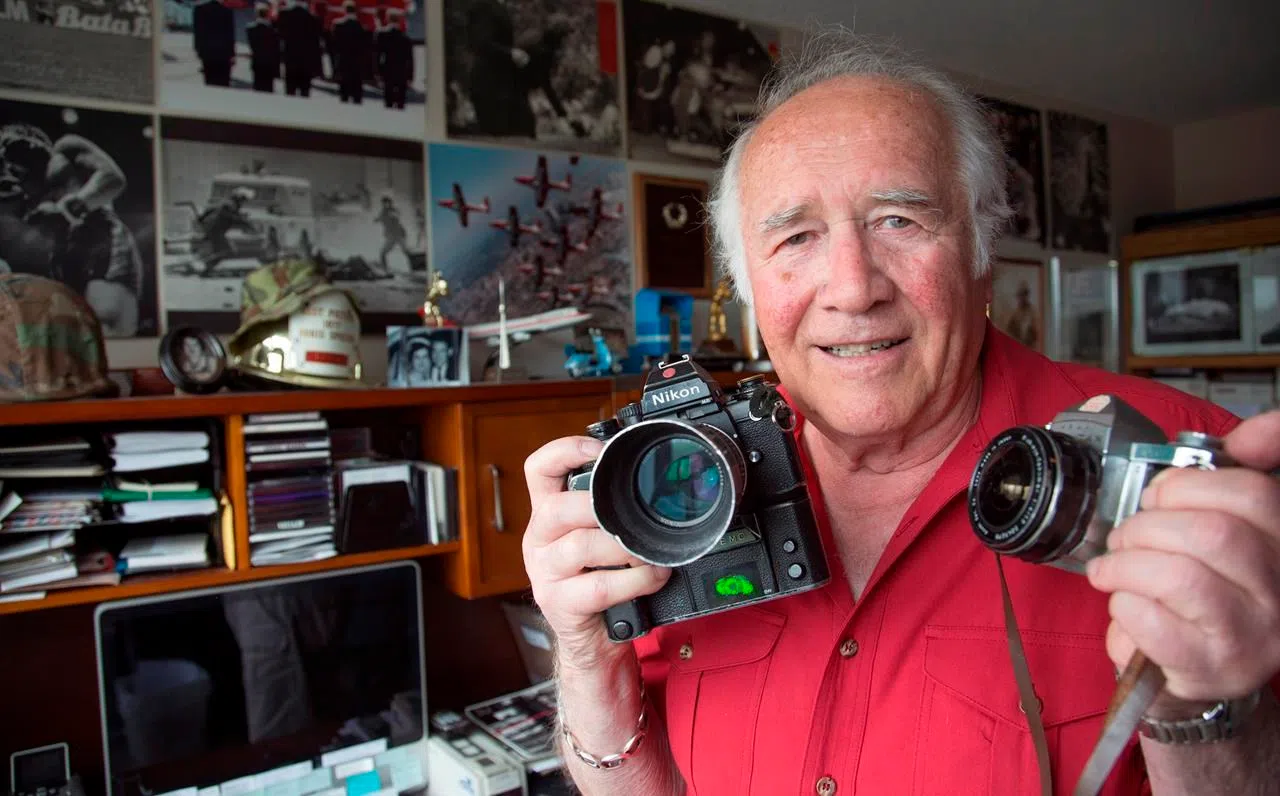
Photographer Boris Spremo remembered for charm, skill, chutzpah
TORONTO — Award-winning photojournalist Boris Spremo, a blue-eyed charmer who captured intimate and surprising moments from world leaders and average citizens alike, has died.
The retired newsman died Monday in hospital after a short battle with cancer, said Diana Spremo, one of his four daughters. He was 81.
“He was the man of the house, he was our hero,” she said Tuesday while recounting stories about a loving father who would regale his children with tales from the road. “He really had a passion for life, he was always making jokes, he took life to the fullest.”
Spremo’s 34 years at the Toronto Star took him to war zones in Vietnam, Cyprus, Belfast, Grenada and the Falkland Islands, and he also covered the royal wedding of Prince Charles and Diana.


